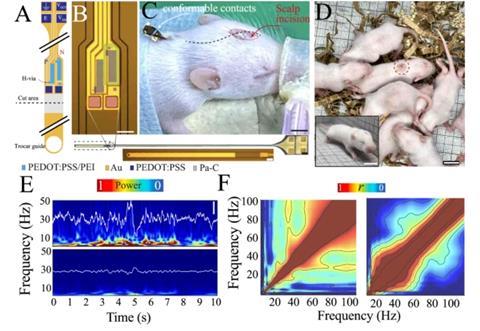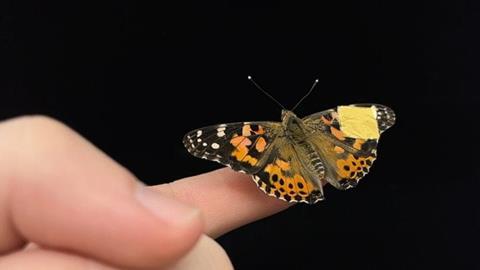A US team has developed an organic electrochemical transistor that is highly biocompatible, reports Nature Communications.
When you think of electronics, you probably think of silicon chips. But despite their versatility, they are not exactly compatible with living organisms, mainly because they are so hard. Researchers at the University of California (Irvine) and Columbia University have a solution to this problem: an organic transistor based on conductive polymer channels.
The polymer in question is poly(3,4-ethylenedioxythiophene)polystyrene sulphonate (PEDOT:PSS). The picture of the (living) butterfly shows a small piece of the resulting transistor, which does not interfere with the beating of the insect’s wings. The beauty of this material is that it can grow with biological tissue and is not repelled by it. To show how well it works, the researchers implanted such a transistor in the brains of baby mice, allowing them to measure neurological function (see below). This technology offers exciting possibilities for combining organic electronics with medical devices.














Nog geen opmerkingen